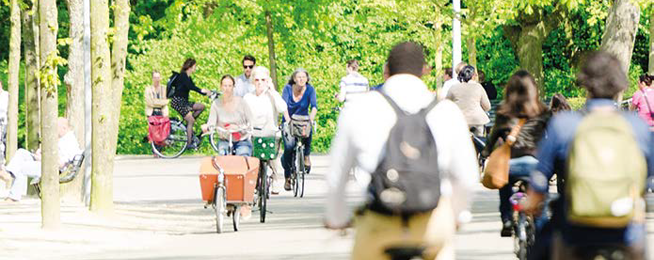A new city-ranking list has named Brisbane as the best city in Australia but overall mobility in major centres is mediocre.
Called the Sustainable Cities Mobility Index and published by private engineering and urban planning firm Arcadis, the list ranks cities on the performance of their transport networks, for quality of life, environmental impact and support of the economy.
Hong Kong took the top spot, while Australian cities all fell in the middle band. Brisbane ranked best, at 48th of 100, followed by Sydney at 51st and Melbourne at 55th.
Hong Kong was followed by Zurich in 2nd and Paris 3rd. European cities dominated the top 20.
The report accompanying the index listing explained that prioritising bikes as transport was a way to improve transport quality and lists the Netherlands as good example of this.
Amsterdam ranked 11th and Rotterdam 25th on the list.
The report pointed out that there has been chronic underinvestment in public transport in Australia.
Melbourne received it’s mediocre ranking due to car dependency. Sydney also was held back by “historic under-investment in public transport” and reliance on private cars on roads.
“Encouragingly, Sydney and Melbourne are both currently building underground metros” the report says.
The report said Brisbane could learn from Amsterdam where the average commute had been cut to less than half an hour by prioritising cycling, creating capacity on trains and trams, and using tunnels for road and rail projects.
Dr Louisa Carter, Arcadis City Executive for southeast Queensland, told the Courier Mail that Brisbane was on the threshold of “a one in a 100 year investment cycle” with projects including Cross River Rail, the Brisbane Metro network and European Train Control System to improve rail efficiency.
The Mobility Index score for each city is based on the city’s performance in 23 individual indicators. Each indicator is assigned a value between 0 and 100 per cent.
The People sub-index measures the social and human impacts of the city’s mobility system, such as coverage of the transport network and wheelchair accessibility, efficiency and upkeep of a metro system, and digital capabilities on the city’s trains and buses.
The Profit sub-index assesses the economic aspects of a city’s mobility system. This encompasses key metrics for commuters, such as time taken to get to work and affordability of the public transport network, as well as the city’s financial commitment to their transport infrastructure.
The Planet sub-index measures the environmental implications of the city’s mobility system, including metrics such as air pollution, greenhouse gas emissions, electric vehicle incentives, and green space.
The three sub-indexes together make the overall ranking.
Read the Sustainable Cities Mobility Index here.


